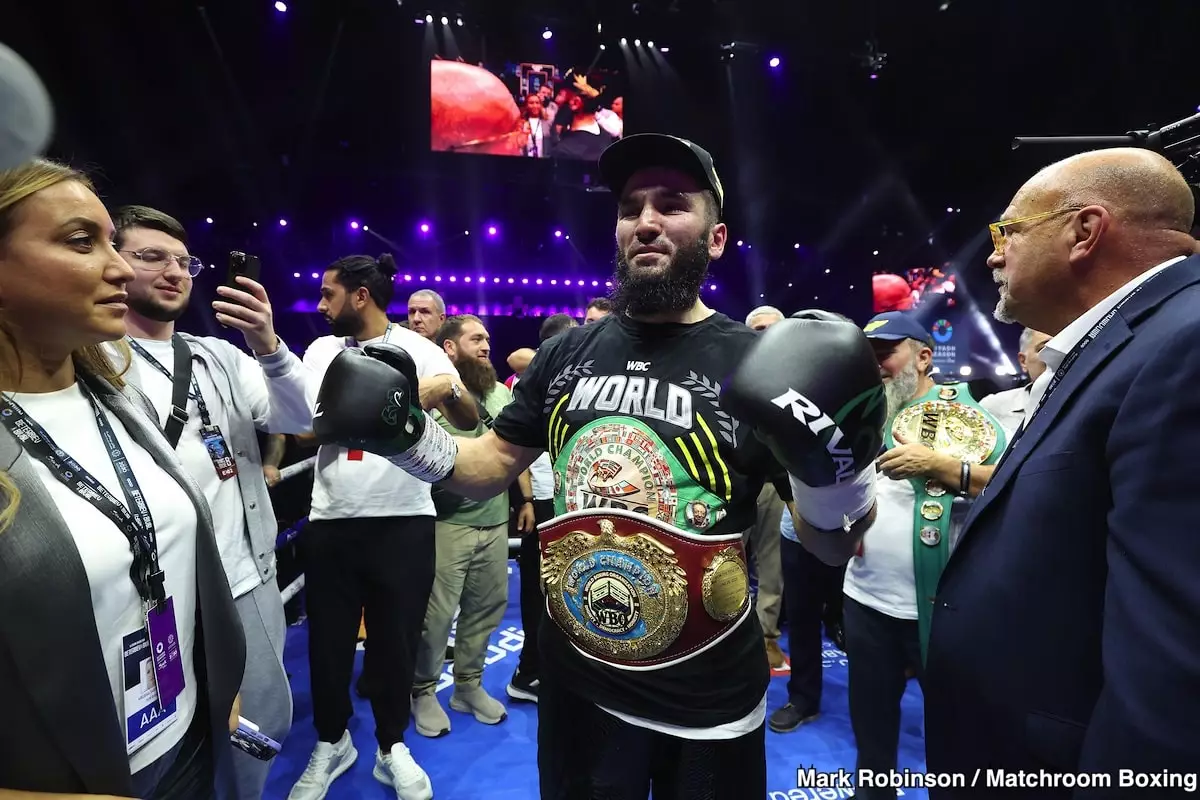The world of boxing is often illuminated by valiant performances and emotional highs, but too frequently, it finds itself cast into shadows by controversial decisions and misjudgments. The recent unification bout between Artur Beterbiev and Dmitry Bivol, held in Riyadh, Saudi Arabia, serves as a prime example of the disarray that can arise within the sport due to flawed judging. Despite the remarkable skills displayed by both fighters, the focus has shifted from their talent and dedication to the questionable scoring that has left fans and pundits in disbelief.
Artur Beterbiev, a ferocious puncher with an unblemished record of knockouts, faced off against Dmitry Bivol, a tactical genius known for his ring IQ and skillset. Their battle was anticipated not only for the titles on the line but for the spirit of competition that both athletes bring to the ring. Over the course of twelve rounds, the bout unfolded as a chess match, with each fighter adjusting and adapting to the other’s strengths. Bivol, displaying remarkable agility and composure, appeared to control the bout remarkably well. While Beterbiev delivered punches that echoed with danger, it was Bivol’s precision and strategy that ultimately stood out.
However, what should have been a celebration of this high-caliber matchup soon devolved into frustration as the formal verdict of the judges emerged. To many observing the fight, it seemed unequivocal: Bivol had executed a masterclass performance, yet the scorecards painted a different story. One judge inexplicably saw the fight as a draw, while others scored in favor of Beterbiev, igniting outrage among fans, commentators, and even the fighters themselves. The decision has triggered waves of debate that question the integrity of the scoring system within boxing.
Judging in boxing is an inherently subjective process. The use of three separate judges to score a bout allows for a diverse interpretation of a fight’s dynamics; however, this system can also lead to catastrophic discrepancies. The scoring announced after the Beterbiev-Bivol match exemplified this flaw. Many experts and enthusiasts alike felt that Bivol controlled the pace and tempo, effectively mitigating Beterbiev’s power, yet the official accounts failed to reflect this consensus. The perceived need for judges to toe the line of expectations or influence from promoter biases only furthers the detriment of effective judging.
This inconsistency has led to an ongoing dialogue about the reform of boxing’s judging. Calls for transparency and perhaps the use of technology to track punches landed or damage inflicted are gaining traction. Boxing purists argue that it is essential to maintain a human element within the judging while also advocating for greater accountability. The fiasco of the recent fight highlights just how much work remains to ensure a level playing field for all athletes involved.
Despite the negative sentiment following the fight, Bivol’s sportsmanship shone through. He refrained from overtly claiming injustice, expressing a level of professionalism that many admired. However, the quiet acceptance of such a decision cannot overshadow the need for a rematch. The call for a second bout is not only logical but necessary. The boxing world deserves clarity—and both fighters deserve the chance to settle the score definitively.
Promoters and management now find themselves in a delicate dance. They must navigate the fallout from this controversial decision while simultaneously generating anticipation for a potential rematch. Expectations run high among fans, and with the central argument in favor of Bivol’s performance, the financial incentives for a second encounter are undoubtedly compelling.
This incident has cast a long shadow over the sport of boxing, igniting dialogues about fairness and the integrity of judging. The ramifications of the Beterbiev-Bivol decision reach beyond personal disappointment; they resonate through the core of boxing culture. The debate surrounding subjectivity, potential corruption, and ineptitude in the scoring realm is not a new one, but it demonstrates an urgent need for systemic reform.
As the boxing community heals from yet another judging blunder, the focus should remain on the fighters whose skills deserve recognition free from bias and error. Boxing thrives on its narratives, the triumphs, the heartaches, and the stories of grit. Yet it is the resolution of conflicts like that between Beterbiev and Bivol that will ultimately shape the future palpable perceptions of the sport. The echoes of this fight will resonate long after the final bell has rung—calling for introspection, reform, and, most importantly, fairness in boxing.

